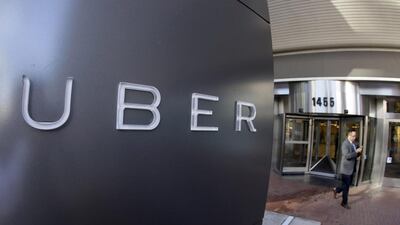The Saudi Arabian government has put US$3.5 billion into online taxi service company Uber as part of the country’s new 2030 Vision plans to reduce dependence on oil and boost women’s participation in the workforce.
Saudi’s sovereign wealth fund the Public Investment Fund (PIF) announced yesterday that it had made the investment – one of its single largest international transactions to date and its first since the country announced new plans for diversifying the kingdom’s economy in April.
According to Uber, the cash makes what was already one of the largest venture-funded start-ups worth a staggering $62.5bn.
The investment, part of Uber’s Series G fundraising round, will also involve the Saudi fund’s managing director Yasir Al Rumayyan taking a seat on Uber’s board as the country searches for ways to shore up public finances in the wake of low oil prices.
Uber has operated in Saudi Arabia since early 2014, where it serves Riyadh, Jeddah, Mecca, Medina and the Eastern Province.
According to the company, a staggering 80 per cent of its customers in the country are women who are not legally allowed to drive and generally avoid using public taxis to get around.
The huge demand from women in the country has prompted Uber to appoint Saudi entrepreneur princess Reema Bandar Al Saud to its policy advisory board.
“We’ve seen first-hand how this company has improved urban mobility around the world and we’re looking forward to being part of that progress,” said Mr Al Rumayyan.
“As the kingdom of Saudi Arabia’s sovereign investment arm, we’re focused on achieving attractive long-term financial returns from our investments, while supporting Saudi Arabia’s Vision 2030, the blueprint for diversifying our economy away from oil,” he added.
“This ambitious and far-reaching plan presents a number of goals, including unlocking strategic sectors such as tourism and entertainment, boosting employment opportunities and women’s participation in the workforce, and encouraging entrepreneurship.”
Princess Reema said: “I think it is an indicative investment of where we are moving for the country, putting our money in a visionary business. A lot of people were originally quite sceptical of Uber in our region, and the fact that PIF is investing is quite an indicator of how things are changing.”
The move also comes as investors in the Middle East are increasingly funnelling their cash into technology companies amid an increase in private equity investments.
In December a group of investors led by the Saudi billionaire prince Al Waleed bin Talal and his investment firm Kingdom Holding invested $247.7 million in Uber rival Lyft.
And in November Abraaj Group, one of the Mena region’s biggest private equity players with managed assets of $9bn, led a group to invest $60m into Careem, the regional app-based car service that also competes with Uber.
“Attracting further investment, especially of this size, further validates the technology sector and the on-demand transport category,” said Dany Farha, co-founder and chief executive of Beco Capital, a Dubai-based venture capital business that has also invested in Careem.
“The more money that flows into this sector globally, the better for the entire sector as this investment will accelerate the size of the market and hence drive down ETA’s making on demand transport the default mode of transport.”
Careem’s co-founder and managing director Mudassir Sheikha said that the Saudi investment in its rival is “a validation of the potential of technology to improve the lives of people” and that increased competition would help the advancement of the region.
Outlined by deputy crown prince Mohammed bin Salman in a TV interview in April, the Saudi National Transformation Plan aims to end dependence on oil revenues by 2020 through the development of a domestic defence industry, the sale of a stake in national oil giant Saudi Aramco, and the introduction of new taxes.
According to IMF data, the Saudi Arabian government earns about 77 per cent of its revenues from oil. Last year’s global lull in oil prices is forcing the country to delay major infrastructure projects and cut back on public spending.
lbarnard@thenational.ae

